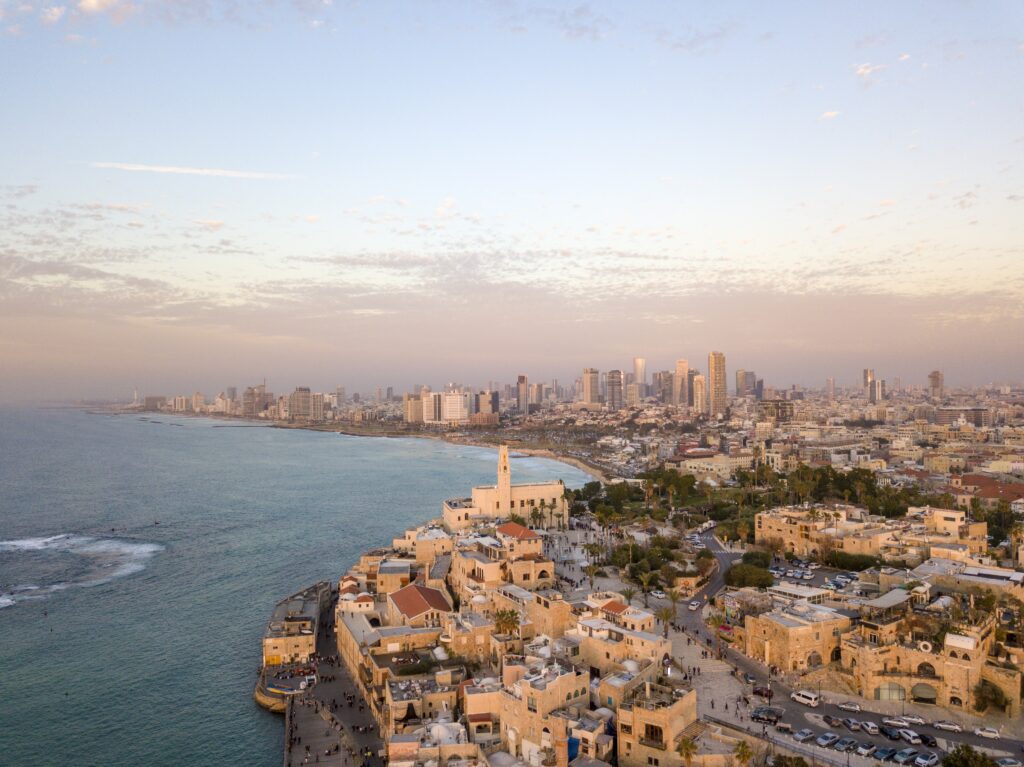The dire situation of hospitals in Gaza amidst the ongoing Israel-Hamas conflict has caught the attention of doctors and aid groups. The overcrowded health care facilities are facing shortages of supplies, including water, medication, and blood for transfusions. Patients are being admitted to hospital corridors due to the lack of available beds, while others seek shelter at hospitals after their homes have been destroyed by air strikes. The morgue at Al Shifa hospital is overflowing, and children make up a significant number of patients injured by air strikes. With hospitals at their breaking point and the blockade preventing essential health supplies from entering Gaza, the World Health Organization has issued a warning about the dire situation. Additionally, health care workers are at risk, with multiple casualties already reported. The situation calls for urgent attention and action to address the worsening conditions in Gaza hospitals.
The Overcrowding and Lack of Supplies
Shortage of water and medication
Hospitals in Gaza are facing dire circumstances due to the ongoing Israel-Hamas conflict. The most urgent issues on hand are the overcrowding of health care facilities and the lack of supplies to treat patients. Dr. Ahmad Almoqadam from Al Shifa Hospital, the largest hospital in the Gaza Strip, highlighted the shortage of water and medication. The scarcity of these resources is putting the lives of patients at risk. Additionally, there is a severe lack of blood products for transfusions, making it difficult to provide the necessary care for those in need.
Lack of blood products for transfusions
The scarcity of blood products for transfusions is a critical challenge in Gaza’s hospitals. Dr. Almoqadam mentioned that the injured people in Gaza require blood transfusions, but the hospital lacks the necessary supply. This shortage puts patients with severe injuries at a higher risk of complications and even death. The limited availability of medical supplies, including gauzes, further exacerbates the challenges faced by health care workers in providing adequate treatment.
Admitting patients in hospital corridors
Hospitals in Gaza are facing unprecedented levels of overcrowding, with patients being admitted in hospital corridors due to a lack of available beds. This situation not only compromises patient comfort and privacy but also poses additional challenges for health care workers in providing quality care. The inability to accommodate all patients in proper hospital rooms further highlights the overwhelmed state of the health care system in Gaza.
Patients sheltering at the hospital
As a result of the conflict, many civilians in Gaza have lost their homes to air strikes. Consequently, some displaced individuals find temporary shelter at hospitals, further adding to the strain on the health care system. The increased number of people seeking refuge at hospitals demonstrates the dire circumstances faced by the civilian population and the pressing need for immediate action and intervention.
Impact on Health Care Workers
Lack of homes for health care workers
The Israel-Hamas conflict has not only affected the health care system in Gaza but also the lives of health care workers. Dr. Almoqadam, along with many others, has lost his home as a result of the destruction caused by air strikes. This loss of personal property adds an additional layer of difficulty for health care workers who are already working tirelessly to provide care amidst the dire situation. The lack of stable housing for these workers further highlights the urgent need for support and resources.
Overflowing morgue at Al Shifa hospital
The morgue at Al Shifa Hospital is currently overflowing due to the high number of casualties resulting from the conflict. Normally, the morgue can accommodate about 30 bodies at a time. However, the increasing number of deaths has forced workers to stack corpses outside the walk-in cooler. This distressing situation demonstrates the overwhelming impact of the conflict on the health care system and the challenges faced by health care workers in dealing with the aftermath.
Disproportionate number of women and children injured
Doctors Without Borders (MSF) reported that a significant number of patients in Gaza City’s clinics are children. Women and children are disproportionately affected by air strikes, as they are often in the houses that become targets. This trend highlights the devastating impact of the conflict on vulnerable populations and emphasizes the urgent need for intervention and protection of civilians, particularly women and children.
Risk to health care workers
Health care workers in Gaza are operating in an extremely high-risk environment. The World Health Organization (WHO) reported that since October 7, 11 health care workers have been killed while on duty, and 16 have been injured. These brave individuals are putting their lives at risk to provide care to those in need. The precarious situation faced by health care workers underscores the urgent need for support, protection, and immediate action to address the escalating health care crisis in Gaza.

Hospitals at Breaking Point
Blockade leading to food and water shortage
The blockade imposed on Gaza as part of the conflict has resulted in severe shortages of food and water. The limited availability of these essential resources has drastic implications for the health care system. Hospitals are struggling to meet the basic needs of patients due to the scarcity caused by the blockade. This situation further exacerbates the strain on health care facilities and the already overwhelming challenges faced by health care workers.
Power cuts and rationing of electricity
The blockade has also led to power cuts and the rationing of electricity in Gaza. Hospitals are only receiving a few hours of electricity each day, forcing them to rely on generators to sustain critical functions. However, even these functions are at risk of ceasing in the near future due to depleting fuel reserves. The inadequate supply of electricity greatly hampers the provision of effective care and places an additional burden on health care workers.
Difficulty in delivering medical care and supplies
The blockade has severely hindered the delivery of medical care and supplies to Gaza. The movement of essential health resources is limited, making it challenging for medical personnel to provide the necessary care to patients. The situation is further worsened by the damaged infrastructure and restricted access caused by the conflict. The difficulty in delivering medical care and supplies underscores the urgent need for immediate intervention and support from the international community.
Disruption of essential health services
As a result of the conflict and the blockade, essential health services in Gaza have been significantly disrupted. The management of noncommunicable diseases, such as cancer and heart diseases, and the treatment of common infections have been compromised. Health facilities are forced to prioritize lifesaving emergency care, leaving many vulnerable patients without access to vital services. This disruption in essential health services further highlights the dire consequences of the conflict on the overall health care system in Gaza.
Dwindling Resources and Humanitarian Crisis
MSF statement on evacuating civilians
In response to the Israeli government’s order for civilians in northern Gaza to evacuate, Doctors Without Borders (MSF) issued a statement criticizing the decision as “outrageous.” They emphasized the humanitarian impact of such an order on more than a million human beings in Gaza. MSF condemned Israel’s demand and called for an immediate end to the violence, emphasizing the urgent need for intervention to protect the lives of civilians.
Warning from the World Health Organization
The World Health Organization (WHO) has warned that hospitals in the Gaza Strip are at the brink of breaking point. The severe shortage of supplies, including water, medication, and blood products, coupled with power cuts and rationing of electricity, has pushed the health care system to the edge. The WHO stressed the urgent need for immediate action to prevent a complete collapse of health services in Gaza.
Risks to essential health services and personnel
The escalating conflict and the dire situation in Gaza pose significant risks to essential health services and personnel. The disruption in the delivery of medical care and supplies, coupled with the danger faced by health care workers, puts the entire health care system at risk. The global community must recognize the gravity of the situation and take immediate steps to address the humanitarian crisis in Gaza.

The Toll on Civilians
Impact on children
Children in Gaza are bearing a significant burden amid the conflict. They are particularly vulnerable to the consequences of air strikes, with many suffering injuries and trauma. The unrelenting violence leaves a lasting impact on the physical and mental well-being of these children. The international community must prioritize the protection and welfare of children and ensure their access to necessary health care and support services.
Deaths and injuries among the civilian population
The ongoing conflict has resulted in a significant number of deaths and injuries among the civilian population in Gaza. The indiscriminate nature of the violence has caused immense suffering and loss for countless families. The toll on civilians, both physically and emotionally, is devastating. Urgent action is needed to put an end to the violence and ensure the safety and well-being of the civilian population.
Humanitarian concerns and call for action
The situation in Gaza has raised grave humanitarian concerns that demand immediate action. The lack of adequate medical care, essential supplies, and basic necessities has created a crisis of immense proportions. The international community must come together to address these concerns and provide the necessary support and resources to alleviate the suffering of the civilian population in Gaza.
International Response and Responsibility
World Health Organization’s role
The World Health Organization (WHO) plays a crucial role in addressing the health care crisis in Gaza. The organization provides guidance and support to local health authorities and advocates for the protection of health care facilities and personnel. The WHO also emphasizes the importance of urgent intervention from the international community to address the escalating situation and ensure the provision of essential health services.
Implications of the blockade and restrictions
The blockade and restrictions imposed on Gaza have severe implications for the health care system and the overall well-being of the population. The limited access to essential resources, including food, water, and medical supplies, exacerbates the already dire situation. It is crucial for the international community to recognize the harmful consequences of these measures and take immediate action to lift the blockade and ensure the unrestricted flow of essential goods and services.
Calls for immediate action and intervention
The current health care crisis in Gaza demands immediate action and intervention from the international community. The escalating violence and the dire conditions faced by health care workers and civilians require urgent attention. Governments, organizations, and individuals must join forces to alleviate the suffering and provide the necessary support and resources to rebuild the health care infrastructure in Gaza.
Responsibility of the international community
The international community has a responsibility to address the health care crisis in Gaza. Governments and organizations must prioritize the protection and well-being of civilians, ensure access to essential health services, and work towards a lasting solution to the conflict. It is imperative that the international community stands in solidarity with those affected by the crisis and takes decisive action to bring about positive change.

Israeli-Hamas Conflict and Health Care
Ongoing conflict and its impact on health care
The ongoing Israeli-Hamas conflict has had a devastating impact on the health care system in Gaza. The violence, destruction, and displacement have overwhelmed hospitals and medical personnel, leaving them struggling to provide adequate care. The conflict has disrupted the delivery of essential health services and put the lives of civilians and health care workers at risk.
Challenges faced by hospitals and medical personnel
Hospitals and medical personnel in Gaza face numerous challenges as a result of the conflict. Overcrowding, shortage of supplies, lack of adequate infrastructure, and limited access to essential resources have stretched the health care system to its limits. Medical personnel are working under extreme conditions, risking their lives to provide care, while hospitals are grappling with the overwhelming number of patients and insufficient resources.
Long-term consequences for the health care system
The Israeli-Hamas conflict has long-term consequences not only for the immediate health care crisis but also for the overall health care system in Gaza. The damage to infrastructure, loss of health care workers, and disruption of essential services will have far-reaching effects even after the conflict subsides. Rebuilding and strengthening the health care system in Gaza will be a daunting task that requires comprehensive and sustained efforts.
Addressing the root causes of conflict
To ensure a sustainable and resilient health care system in Gaza, it is crucial to address the root causes of the Israeli-Hamas conflict. Promoting dialogue, peacebuilding initiatives, and long-term resolutions are essential steps toward achieving lasting peace and stability. By addressing the underlying factors contributing to the conflict, the international community can contribute to a healthier and more secure future for the people of Gaza.
Supporting Gaza’s Health Care System
Providing aid and resources to Gaza’s hospitals
Supporting Gaza’s health care system requires providing essential aid and resources to hospitals and medical personnel. Increasing the supply of medical equipment, medications, and blood products is crucial to meet the immediate needs of patients. Additionally, financial support for infrastructure development, training programs, and capacity building will contribute to the long-term sustainability and resilience of the health care system in Gaza.
Raising awareness and advocating for change
Raising awareness about the health care crisis in Gaza is vital for mobilizing support and resources. Highlighting the dire situation faced by hospitals, health care workers, and civilians can generate public empathy and garner international attention. Advocacy efforts must aim to put pressure on governments and international organizations to take immediate action and intervene in the conflict to protect the health and well-being of the people in Gaza.
Coordinating international efforts for assistance
Coordinating international efforts for assistance is critical to address the health care crisis in Gaza effectively. Governments, non-governmental organizations, and international bodies must collaborate to ensure a comprehensive and well-coordinated response. Sharing resources, expertise, and best practices will optimize the impact of support and help build a stronger health care system in Gaza.
Rebuilding and strengthening the health care infrastructure
Rebuilding and strengthening the health care infrastructure in Gaza is a long-term goal that requires significant investment and commitment. Efforts should focus on restoring damaged facilities, improving access to essential resources, and enhancing the capacity of health care workers. Sustainable solutions must be implemented to ensure the resilience and sustainability of the health care system, even in times of crisis.

The Role of Media and Public Awareness
Shedding light on the dire situation in Gaza
The role of the media is crucial in shedding light on the dire situation faced by Gaza’s health care system. Media outlets can provide accurate and comprehensive coverage of the health care crisis, highlighting the challenges faced by hospitals, health care workers, and civilians. By bringing attention to the plight of the people in Gaza, the media can play a pivotal role in mobilizing public support and spurring action from the international community.
Educating the public about the health care crisis
Educating the public about the health care crisis in Gaza is essential for fostering understanding and empathy. Media outlets, journalists, and organizations should provide in-depth analysis and reporting on the complexities of the situation, the impact on health care, and the urgent need for intervention. By informing the public, we can foster a sense of responsibility and generate support for initiatives aimed at addressing the crisis.
Mobilizing support and resources through media
The media can play a significant role in mobilizing support and resources for Gaza’s health care system. Through impactful storytelling, interviews, and coverage of relief efforts, media outlets can inspire individuals, organizations, and governments to contribute their resources and expertise. By leveraging the power of media, we can facilitate the necessary support to rebuild and strengthen the health care infrastructure in Gaza.
Ensuring accountability and transparency
Media coverage should emphasize the importance of accountability and transparency in addressing the health care crisis in Gaza. Spotlighting the actions and decisions of relevant stakeholders, such as governments, international organizations, and armed groups, can hold them accountable for their roles or lack thereof in resolving the crisis. Transparent reporting can also foster trust and facilitate effective cooperation among different actors involved in addressing the health care crisis.
The Need for Sustainable Solutions
Addressing the root causes of the conflict
Sustainable solutions to the health care crisis in Gaza require addressing the root causes of the Israeli-Hamas conflict. This includes addressing political, social, and economic factors that contribute to the ongoing hostilities. By promoting dialogue, peacebuilding initiatives, and addressing grievances, we can create an environment conducive to lasting peace and stability, which is vital for a resilient health care system.
Investing in long-term health care strategies
Investing in long-term health care strategies is essential for building a robust and sustainable health care system in Gaza. This includes prioritizing infrastructure development, healthcare workforce training, and capacity building. By investing in these areas, we can enhance the readiness and responsiveness of the health care system, ensuring its ability to cope with emergencies and provide high-quality care to the population.
Promoting dialogue and peacebuilding initiatives
Promoting dialogue and peacebuilding initiatives is key to creating an environment conducive to sustainable health care in Gaza. Facilitating open and inclusive discussions among relevant stakeholders can foster understanding, trust, and cooperation. By promoting peaceful resolution of conflicts and addressing grievances, we can create a foundation for a stable and resilient health care system that can meet the needs of the population.
Building a resilient health care system in Gaza
Building a resilient health care system in Gaza requires comprehensive planning and collaboration. This includes strengthening health infrastructure, ensuring a sufficient supply of essential resources, and developing robust emergency response mechanisms. By prioritizing resilience in the design and operation of the health care system, we can mitigate the impact of future crises and ensure the well-being of the people in Gaza.
